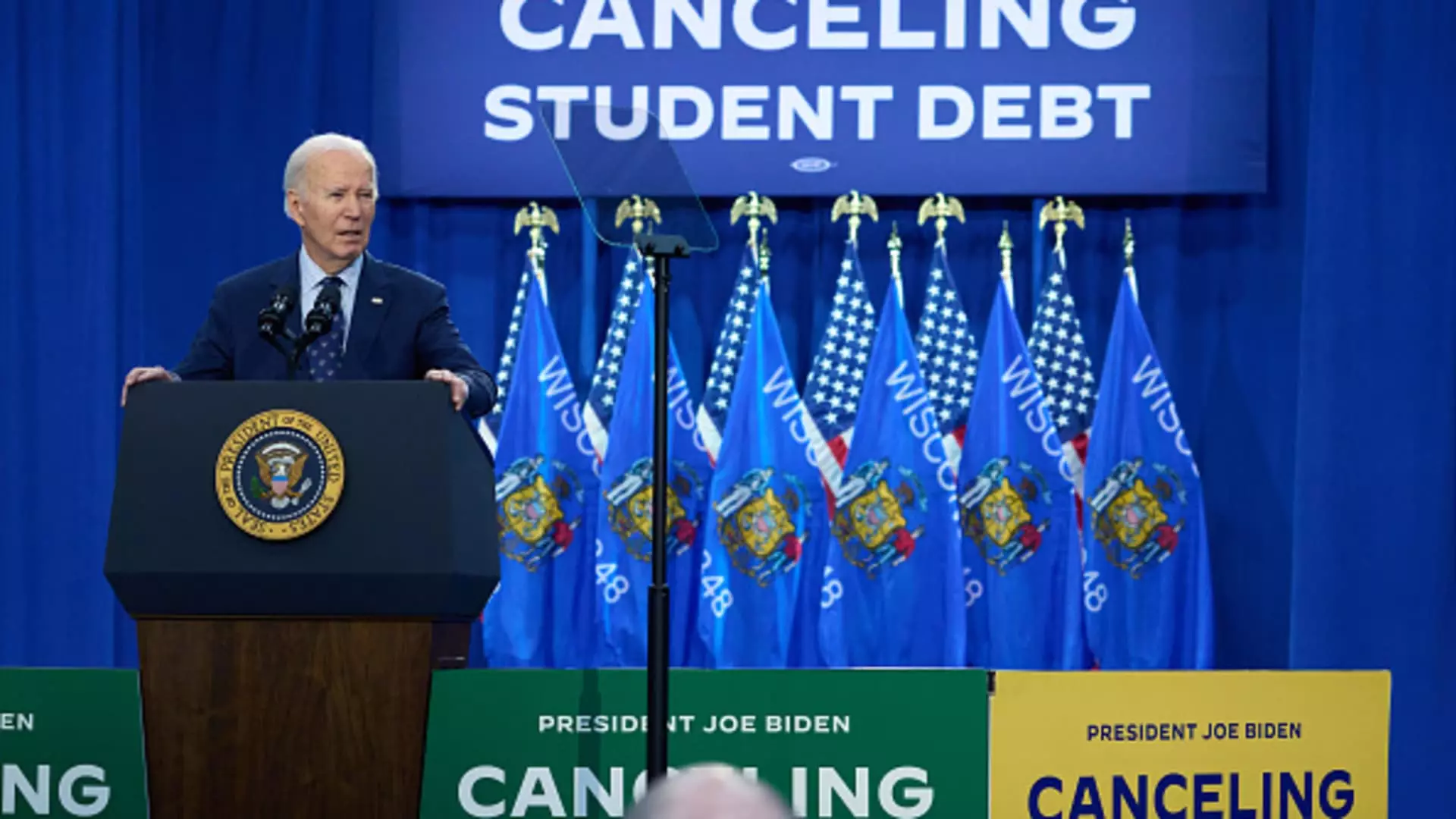President Joe Biden is considering forgiving the debt of millions of federal student loan borrowers just weeks before the upcoming election. In the Biden Administration’s Spring 2024 Unified Agenda, the U.S. Department of Education revealed that it would be finalizing its rule on student loan relief in October. This rule aims to provide financial relief to a significant portion of borrowers and has the potential to influence the choice between Biden and former President Donald Trump at the ballot box in November.
While the regulatory changes could delay the implementation of the program until July 2025, an earlier action could be taken by the Department of Education. By publishing a notice in the Federal Register, the administration could expedite the process and have the relief in effect sooner. This early action could create a conflict between Democrats and Republicans regarding student debt forgiveness during the election, as mentioned by higher education expert Mark Kantrowitz.
Debt Forgiveness and Voter Sentiment
A significant portion of voters considers student debt cancellation to be an important issue in the upcoming election. According to a recent survey by SocialSphere, 48% of voters believe that canceling student debt is crucial for the 2024 presidential and congressional elections. This sentiment is particularly strong among Gen Z and millennial respondents, with 70% and 72%, respectively, indicating the importance of student loan forgiveness.
Conservatives have raised concerns about the fairness of forgiving student debt, especially for individuals who have benefited from higher education. Ryan Walker, the executive vice president of Heritage Action for America, criticized Biden’s debt transfer as unconstitutional and unfair. Conservatives argue that forcing all Americans to bear the debt of a select few is unjust and goes against the principles of fairness and individual responsibility.
The Biden administration’s efforts to provide student loan relief have faced legal challenges, with lawsuits filed by several Republican-led states against the proposed debt cancellation. These states argued that the president exceeded his authority, and the Supreme Court justices agreed with them, leading to the rejection of Biden’s initial loan forgiveness attempt. The upcoming publication of the new forgiveness plan in October is expected to trigger further legal challenges, with critics questioning the constitutionality and regulatory power of the proposed relief program.
Impact on the Education Department and Trump’s Policies
Former President Donald Trump has expressed opposition to existing loan relief programs and has proposed significant budget cuts to the Education Department. Trump’s stance on student debt forgiveness has been critical of Biden’s policies, with plans to dismantle the Education Department altogether. As the election approaches, Trump’s position on financial aid programs and student debt relief is expected to influence the discussion on higher education and federal student loans.
The forgiveness of student loans could have a significant impact on the upcoming election, with the Biden administration’s proposed relief program drawing both support and opposition. The legal challenges and conservative criticism surrounding debt forgiveness highlight the complex nature of the issue and its implications for the education system and federal finances. As voters weigh the importance of student loan forgiveness in their decision-making process, the outcome of the election could shape the future of higher education policy in the United States.

